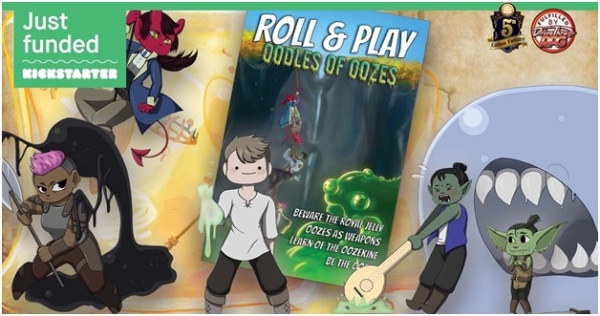Pay What You Want
By The Warden
 Civilized society has lead us to believe there’s only one decent way to conduct business. A business creates a new product or service and makes it available to the general public at a specific price. Business markets that product at the chosen price, maybe even knocks it down by a few points to make it appear as a bigger bargain. Consumer pays the listed price and receives the product or access to the service. Business and consumer are happy and everyone moves on with their lives using and profiting from said product or service.
Civilized society has lead us to believe there’s only one decent way to conduct business. A business creates a new product or service and makes it available to the general public at a specific price. Business markets that product at the chosen price, maybe even knocks it down by a few points to make it appear as a bigger bargain. Consumer pays the listed price and receives the product or access to the service. Business and consumer are happy and everyone moves on with their lives using and profiting from said product or service.
If there’s one thing the Internet is good for, it’s turning traditional models on their heads and causing mass panic and simultaneous relief on a pressurized market. This past week, OneBookShelf – owner and operator of the RPG industry’s largest online PDF marketplace for roleplaying, wargaming, comics, and other geek media – opened up a beta for a new pricing model: Pay What You Want. (You can view a summary of this new pricing model on Wikipedia.) At the publisher’s discretion, consumers can enter in their own range and download the product without a fuss. In some cases, it may be possible to download a product for free if the consumer so chooses or to ramp it up as large as double digits with a dollar sign in front of it.
It’s an intriguing development and one I’m seriously considering for my own products, but it’s not a decision to make lightly. Every possible benefit comes with an assured risk and those bonuses are strictly theoretical at this point. Many of the arguments against this program’s success are the same ones used in the war on piracy – “Why would someone pay for something they can get for free?” Valid in theory, but many publishers and online market analysts have found online pirates will never pay for the products and turn to piracy as their sole means of acquirement. Unlike online piracy, the free option is rarely provided side-by-side with the paid version and that is what makes this opportunity so unique and risky.
The first reaction most publishers and curious consumers ask is “who else is already on board” and the answer surprised me at first. While finding smaller, indie publishers was somewhat of a given (if you’re only selling a dozen or so copies, what possible harm is there in a PWYW model?), but the recently released PDF copies of Fate Core and Fate Accelerated Edition (FAE) are both listed as PWYW on all OBS sites. Still an indie publisher, but one with over half-a-million in fan money invested in putting this massively popular project together. A point could be made that with the money gained from their Kickstarter, they can afford to give a few hundred PDFs away, but that seems highly unlikely or unfeasible for a company like Evil Hat Productions to take such a risk unless they truly felt – possibly with good research behind it – this new model was a way to go.
There are two products that could stand to gain impressive benefits from this model: older products and charity bundles. For the former, I’m talking about products that are still on the shelf and sit in various wish lists the site over, never going any further. If those potential customers could finally get around to adding those files to their carts at a price they’re more willing to pay (assuming price was a factor in their hedging last year), those are still sales that would never have happened without the model. Charity bundles allow everyone an opportunity to contribute at an amount they’re more willing to spend as charity donations can be considered an add-on expense for most consumers. Unfortunately, neither of these options are possible during this beta run of the program as only new products can be introduced with PWYW pricing at this time.
As I mentioned at the beginning of this week’s post, it’s a model I’m seriously considering for another reason. Promotional products are a risky endeavour for most publishers to begin with, solely because they’re intended as a loss leader to bring in new consumers and fans of an upcoming or existing product. Their primary goal is to bring in consumers for another product, typically a core rulebook or boxed set. Supplemental e-zines, such as the Pathways monthly mag supporting Pathfinder and published by Rite Publishing or Savage Insider issues published by Mystical Throne Entertainment (the same company behind this very website) supporting Savage Worlds campaigns, could theoretically expand their reach by offering the same product at a PWYW model if they were indeed released as a means of pushing other products or getting consumers to their site. The question becomes whether or not that’s what these supplements truly are because if not there’s a much greater risk involved.
And so we come back to perhaps the ultimate question behind the practise: do we trust our consumers to “do the right thing?” In many other industries, I’m not sure if that question can be given without providing a guesstimated double-digit percentage drop in sales and profits, but this is the roleplaying market and there’s one factor we have in our favour. These fans are savvy web searchers, bloggers, and tweeters. There’s a reason why pre-sales for unreleased material is becoming a serious resource for many publishers such as Fantasy Flight Games (with their new Edge of the Empire game) and Wizards of the Coast (selling Gen Con-only copies of D&D Next with Ghosts of Dragonspear Castle) and it’s because they can count on fans spreading the word all by themselves. Viral marketing is something this industry has in spades and that requires those same people to have access to the market’s health and performance. Or as best as possible when the top 5 publishers and their products are listed by blind rankings posted without sales figures. Still, fans know Pathfinder is the top product on the market because these fans are invested in the future of the industry. That knowledge means they are very knowledgeable of the impact a drop in profits will have for the market and their favourite publishers; so if a company like Evil Hat Productions have faith in their fans, it should be safe to say the ride may be bumpy, but it’s still going to be a fun ride while it lasts.
Why write that? Because everything’s a fad until it’s a proven resource. Even if it bodes well in this industry, how will it be received in other entertainment based industries? Just because Louis CK was able to pull it off with a stand-up comedy show does not mean Stephen King can set PWYW on his next book. This could come and go either because the fans have tired of the practice, publishers have found limited benefits to the PWYW standard or the hit to the bottom line does result in a loss of profits. The analysis will be brutal and there will be success stories to go with every failure (or maybe one success for every three failures), but it’s hard to say where this will all go until the smoke clears and we see where everything stands in a year from now. Will it become the next DRM or watermark? Will it expand to the POD product catalogue or remain a limited tool for small fries looking to sell that idea that originated from a blog post?
Synchronize your watches, roleplayers. We’ll meet back here in a year and discuss. Until then, I have a promotional e-zine to consider pricing with a question mark.



